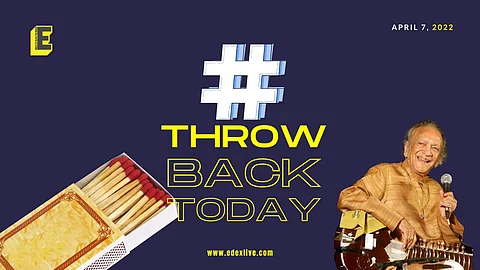

Millions of years ago, the man had discovered fire. But do you know when and who invented the friction match, which is commonly known as 'matchstick'? English inventor John Walker came up with the discovery of friction matches on April 7, 1827. He was one of the rare pharmacists in town who worked not only with natural ingredients, but also with many chemical substances.
During the process of experimenting with various chemical substances, Walker discovered that when strips of cardboard dipped in a mixture of potassium chloride and stibnite, a sulfide mineral, were allowed to dry and then scraped rapidly against sandpaper, it results in a spark like no other!
Guess what Walker sold these matchsticks as? Friction lights! The name has a ring to it, don’t you think?
But wait, the story is not over yet. Later, Walker changed the design of the sticks into three-inch-long wooden splints. But alas, his design was not perfect as the sulfur on the head of the stick would sometimes burn too brightly, thereby, managing to detach itself and fall on the floor. Well, all good things take time, don’t they?
Listen to his tunes
Have you watched the famous film Apu’s Trilogy directed by Satyajit Ray? The invigorating film score surely leaves a mark. That’s because it was composed by the famous musician Ravi Shankar. The Indian musician was considered to be one of the famous sitar players and composers. He was born on April 7, 1920 in Varanasi.
Shankar, who nurtured a great passion for music since his childhood, was also the founder of the National Orchestra of India. He is best known for composing songs like Dharti Ke Lal and Neecha Nagar.
The maestro won three Grammy Awards for the albums West Meets East (1966), The Concert of Bangladesh (1971) and Full Circle (2001). Plus, his influence on Western music is no secret.
